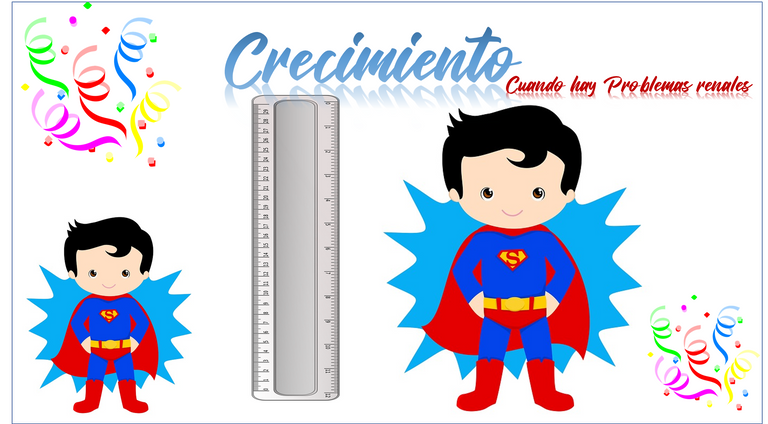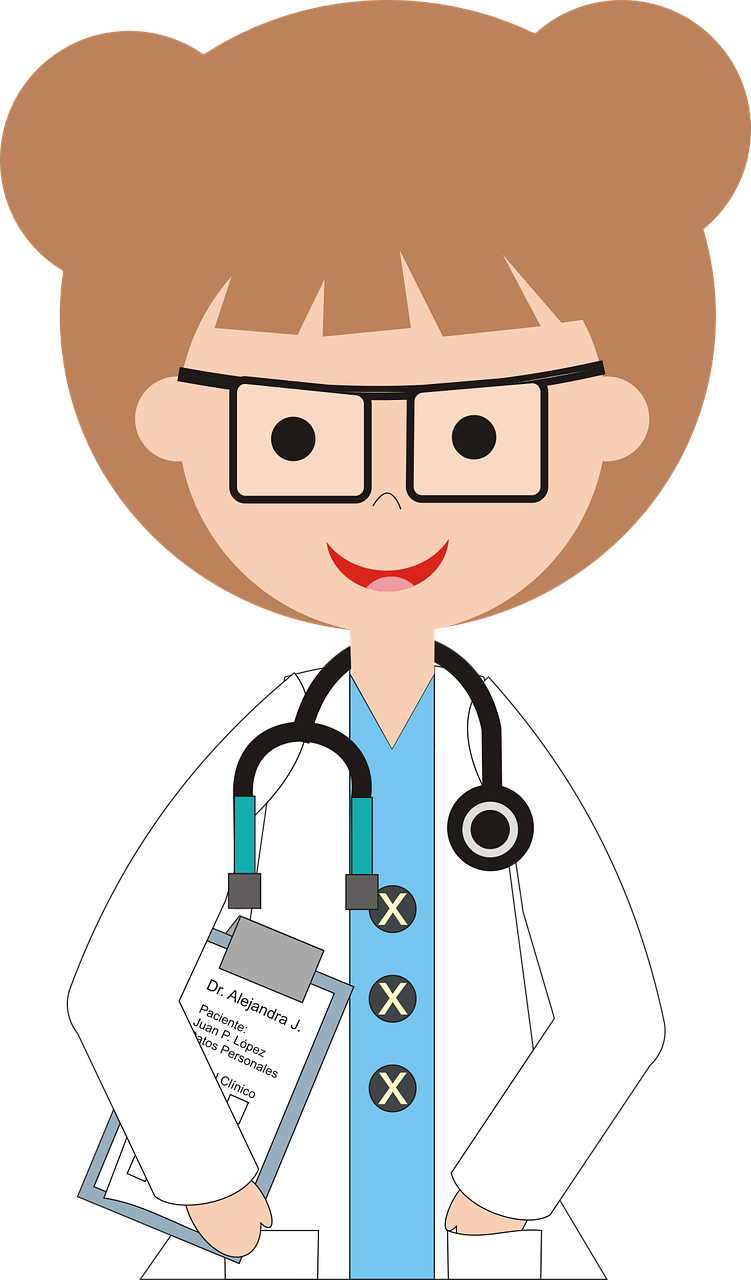
Daniel es un niño de 7 años que ha estado luchando con problemas de crecimiento debido a fallas renales. Desde muy temprana edad, su madre, Ana, notó que Daniel estaba teniendo dificultad para ganar peso y crecer a la misma velocidad que sus pares. A medida que Daniel crecía, Ana se dio cuenta de que su estatura y peso eran significativamente menores que los de otros niños de su edad.
Ana llevó a Daniel a varios médicos para investigar las causas de sus problemas de crecimiento. Después de varios exámenes, se descubrió que Daniel tenía problemas renales que estaban interfiriendo con su capacidad para filtrar los desechos y el exceso de líquido del cuerpo. Además, los riñones de Daniel no estaban produciendo suficientes hormonas para ayudar a regular su crecimiento y desarrollo. Esta es una historia que se repite en el pueblo dondeo vivo asi que me propuse investigar mas, y consultar con mi amiga Martha que es pediatra de la localidad la cual me hablo de como los problemas renales pueden afectar el crecimiento.
PROBLEMAS RENALES Y EL CRECIMIENTO
Los problemas renales en los niños pueden ser causados por una variedad de factores, como enfermedades genéticas, infecciones, traumas y trastornos metabólicos. Estos problemas pueden afectar el crecimiento y el desarrollo del niño de varias maneras, y es importante detectarlos y tratarlos tempranamente para minimizar su impacto.
En primer lugar, los riñones son responsables de filtrar los desechos y el exceso de líquido del cuerpo. Si los riñones no funcionan correctamente, esto puede causar retención de líquidos y edema, lo que puede interferir con el crecimiento y la ganancia de peso. Los niños con problemas renales pueden también experimentar hinchazón en las piernas, los brazos o el abdomen, lo cual puede dificultar el movimiento y la actividad física, además de afectar su estética y su autoestima.
En segundo lugar, los riñones son responsables de producir hormonas que ayudan a regular el crecimiento y el desarrollo del cuerpo.. Los niños con problemas renales pueden tener una estatura baja y un peso bajo comparado con sus amiguitos, lo cual puede afectar su salud física y su autoestima.
En tercer lugar, los niños con problemas renales pueden tener problemas para absorber los nutrientes necesarios para un crecimiento adecuado. Esto puede causar malnutrición y retraso en el crecimiento. Los niños con problemas renales pueden tener dificultad para consumir alimentos debido a la fatiga, el malestar gastrointestinal, la anemia o el dolor, lo cual puede afectar su apetito y su capacidad para consumir alimentos adecuados para su crecimiento. Además, los niños con problemas renales pueden tener dificultad para absorber ciertos nutrientes debido a las alteraciones en la función renal, lo cual puede afectar su crecimiento y desarrollo.
Por último, los problemas renales pueden causar anemia, lo que puede interferir con el crecimiento y la ganancia de peso. La anemia es una afección en la cual el cuerpo no tiene suficientes glóbulos rojos para transportar oxígeno a los tejidos del cuerpo. La anemia puede causar fatiga, debilidad, palidez, dificultad para concentrarse y problemas de aprendizaje en los niños.
Daniel is a 7-year-old boy who has been struggling with growth problems due to kidney failure. From an early age, his mother, Ana, noticed that Daniel was having difficulty gaining weight and growing at the same rate as his peers. As Daniel grew, Ana noticed that his height and weight were significantly less than other children his age.
Ana took Daniel to several doctors to investigate the causes of his growth problems. After several tests, it was discovered that Daniel had kidney problems that were interfering with his ability to filter waste and excess fluid from the body. In addition, Daniel's kidneys were not producing enough hormones to help regulate his growth and development. This is a story that is repeated in the town where I live so I set out to investigate further, and consult with my friend Martha who is a local pediatrician who told me about how kidney problems can affect growth.
KIDNEY PROBLEMS AND GROWTH
Kidney problems in children can be caused by a variety of factors, such as genetic diseases, infections, trauma and metabolic disorders. These problems can affect a child's growth and development in a number of ways, and it is important to detect and treat them early to minimize their impact.
First, the kidneys are responsible for filtering waste and excess fluid from the body. If the kidneys are not functioning properly, this can cause fluid retention and edema, which can interfere with growth and weight gain. Children with kidney problems may also experience swelling in the legs, arms or abdomen, which can make movement and physical activity difficult, as well as affect their aesthetics and self-esteem.
Second, the kidneys are responsible for producing hormones that help regulate the body's growth and development. Children with kidney problems may be short and underweight compared to their peers, which can affect their physical health and self-esteem.
Third, children with kidney problems may have trouble absorbing the nutrients needed for proper growth. This can lead to malnutrition and stunted growth. Children with kidney problems may have difficulty consuming food due to fatigue, gastrointestinal distress, anemia, or pain, which can affect their appetite and their ability to consume adequate food for growth. In addition, children with kidney problems may have difficulty absorbing certain nutrients due to impaired kidney function, which can affect their growth and development.
Finally, kidney problems can cause anemia, which can interfere with growth and weight gain. Anemia is a condition in which the body does not have enough red blood cells to carry oxygen to the body's tissues. Anemia can cause fatigue, weakness, paleness, difficulty concentrating and learning problems in children.

QUE HACER
Ana ha tomado varias medidas importantes para ayudar a Daniel a crecer y desarrollarse de manera saludable. En primer lugar, ha llevado a Daniel a un nefrólogo pediatra, quien le ha recetado medicamentos para ayudar a controlar sus problemas renales. Además, ha trabajado con un nutricionista para ayudar a Daniel a obtener los nutrientes necesarios para un crecimiento adecuado.
En segundo lugar, Ana ha hecho cambios importantes en la dieta de Daniel para ayudarlo a obtener los nutrientes necesarios para un crecimiento saludable. Ha eliminado los alimentos procesados y altos en sodio de la dieta de Daniel y ha aumentado su ingesta de frutas, verduras y proteínas de alta calidad. También ha trabajado con un nutricionista para asegurarse de que Daniel esté recibiendo suficientes calorías y nutrientes esenciales para un crecimiento adecuado.
En tercer lugar, Ana ha tomado medidas para ayudar a Daniel a mantener un estilo de vida activo y saludable. Ha inscrito a Daniel en un equipo deportivo para ayudarlo a mantenerse activo y ha establecido un horario regular de ejercicios para ayudarlo a mejorar su fuerza y resistencia.
A pesar de los problemas renales de Daniel, Ana ha trabajado incansablemente para asegurarse de que su hijo tenga las mejores oportunidades para un crecimiento y desarrollo saludable. Gracias a sus esfuerzos, Daniel ha comenzado a mostrar mejoras significativas en su crecimiento y desarrollo. Ana sigue trabajando con el equipo médico para asegurarse de que Daniel reciba el mejor tratamiento y cuidado.
WHAT TO DO
Ana has taken several important steps to help Daniel grow and develop in a healthy way. First, she has taken Daniel to a pediatric nephrologist, who has prescribed medications to help control his kidney problems. In addition, she has worked with a nutritionist to help Daniel get the nutrients he needs for proper growth.
Second, Ana has made important changes to Daniel's diet to help him get the nutrients needed for healthy growth. She has eliminated processed and high-sodium foods from Daniel's diet and increased his intake of fruits, vegetables and high-quality protein. She has also worked with a nutritionist to make sure Daniel is getting enough calories and essential nutrients for proper growth.
Third, Ana has taken steps to help Daniel maintain an active and healthy lifestyle. She has signed Daniel up for a sports team to help him stay active and has established a regular exercise schedule to help him improve his strength and endurance.
Despite Daniel's kidney problems, Ana has worked tirelessly to ensure that her son has the best opportunities for healthy growth and development. Thanks to her efforts, Daniel has begun to show significant improvements in his growth and development. Ana continues to work with the medical team to ensure that Daniel receives the best treatment and care.

RESUMEN
Según la especialista estos son los pasos que se debeb dar de notamos déficit de crecimiento por problemas renales en los pequeños:
Consultar con un especialista en nefrología: Es importante llevar a un niño con problemas renales a un especialista en nefrología para que puedan recibir el tratamiento adecuado. El nefrólogo puede recetar medicamentos para controlar los problemas renales y puede supervisar el tratamiento a lo largo del tiempo.
Seguir una dieta equilibrada y adaptada: Es importante trabajar con un nutricionista para ayudar a un niño con problemas renales a obtener los nutrientes necesarios para un crecimiento adecuado. Es importante limitar los alimentos procesados y altos en sodio, y aumentar la ingesta de frutas, verduras y proteínas de alta calidad.
Mantener un estilo de vida activo: Es importante ayudar a un niño con problemas renales a mantener un estilo de vida activo para mejorar su fuerza y resistencia. Esto puede incluir inscribir al niño en un equipo deportivo o establecer un horario regular de ejercicios.
Proporcionar apoyo emocional y psicológico: Los problemas renales pueden afectar no solo la salud física, sino también la salud emocional y psicológica de un niño. Es importante proporcionar apoyo emocional y psicológico para ayudar al niño a manejar cualquier ansiedad o depresión relacionada con sus problemas de salud. Esto puede incluir hablar con un terapeuta o consejero.
SUMMARY
According to the specialist, these are the steps that should be taken if we notice growth deficits due to kidney problems in children:
Consult a nephrology specialist: It is important to take a child with kidney problems to a nephrology specialist so that they can receive appropriate treatment. The nephrologist can prescribe medications to control kidney problems and can monitor treatment over time.
Follow a balanced and adapted diet: It is important to work with a nutritionist to help a child with kidney problems get the nutrients needed for proper growth. It is important to limit processed and high sodium foods, and increase intake of fruits, vegetables and high quality protein.
Maintain an active lifestyle: It is important to help a child with kidney problems maintain an active lifestyle to improve strength and endurance. This may include signing the child up for a sports team or establishing a regular exercise schedule.
Provide emotional and psychological support: Kidney problems can affect not only physical health, but also a child's emotional and psychological health. It is important to provide emotional and psychological support to help the child manage any anxiety or depression related to their health problems. This may include talking to a therapist or counselor.

CONCLUSION
Recuerden que cada niño es único y su crecimiento y desarrollo pueden variar, pero con el tratamiento adecuado y el seguimiento constante, su hijo tendrá las mejores oportunidades para crecer y desarrollarse de manera saludable. Con esto me despido deseando un feliz día o noche. Gracias por leer mi post.
CONCLUSION
Remember that each child is unique and their growth and development may vary, but with proper treatment and consistent follow-up, your child will have the best chance to grow and develop in a healthy manner. With this I say goodbye wishing you a happy day or night. Thank you for reading my post.
